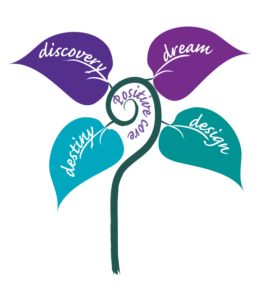Making Appreciative Inquiry work – designing the questions

In order to help you try out Appreciative Inquiry (without our expert guidance!), the next two blog posts will guide you through a foundation, questions….
The set of questions used in Appreciative Inquiry is called a protocol. I can best show how they are developed by listing the questions we used in Thanet (see the post Why I like Appreciative Inquiry) and how they evolved:
| Final order | Original order | Question |
| 1 | 2 | What do you most enjoy about living in Thanet, and why?
(‘Why’ added to find out what makes it enjoyable. E.g. want not ‘coast’ but ‘restorative effect of walking along the coastline’.) |
| 2 | 3 | Apart from family and friends, which people do you value in your community, and why?
(Purpose of the question was to identify local heroes and their characteristics. ‘Apart from family and friends’ added to deter people from saying ‘my mum’.) |
| 3 | 6 | Looking back on your time in Thanet, tell me about an occasion when people worked together to make something happen.
What can we learn about encouraging people to work together in future? (In both this question and the next, reference was added to ‘in your time in Thanet’. This was to encourage a story of personal experience rather than history. Second part of the question changed from ‘What would get people to work together in future?’, which produced answers like ‘common enemy’ or ‘great discontent’.) |
| 4 | 1 | Tell me about something that has improved quality of life for people in Thanet in your time here. Who or what made it happen?
(‘something that has improved quality of life’ replaced ‘best thing’ which was felt to be weak.) |
| 5 | 4 | What would you most like to see happen in Thanet?
Who could make it happen and what would get them to act? |
| 6 | 5 | What if anything would you like to do to make life better for the people of Thanet?
What encouragement and support would you like? (Question altered to ensure that replies were about behaviour [‘promoting local musicians’] rather than attitudes [‘staying positive’].) |
The most important thing is to bash out an initial set of questions and then try them out. The steering group in Thanet tried out the first draft of the questions on thirty people between them: family, friends and work colleagues. They returned the question sheets both with the answers to the questions and comments on how well the questions had worked. That was invaluable.

